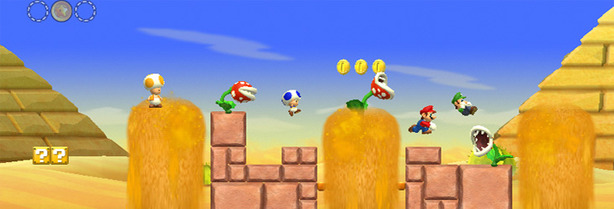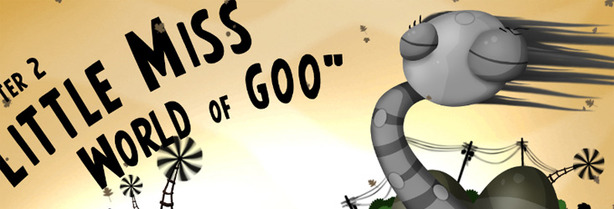Games, Not Platforms
Piracy aside, people still won’t pay £39.99 for a game if they can’t afford it, particularly if the games on offer are uninspiring drivel such as keep fit games or yet more music rhythm games.This, for me, is where the console industry is particularly exposed at the moment, with sales of its most expensive titles, music games falling dramatically this year. It’s also one thing that publishers seem to consistently ignore – that just because something is pirated X times doesn’t mean they’ve lost X sales.
Going after a new audience was initially a good strategy for Nintendo with the Wii, and I know many Wii owners who have never owned a console before, including my parents. The sales figures for the games are amazing too, with Wii Fit racking up 22.5 million worldwide sales and Nintendogs on the DS chalking up 22.27 million. As a point of comparison, Crysis had sold only 1 million copies in January last year.
The problem is that people who aren’t really into gaming aren’t going to stick with it when the money runs out, and I know plenty of casual Wii owners who haven’t touched their console for over a year (I’m not one of them, by the way). Unlike committed gamers such as you and me, casual gamers don’t count down the days until the release from Valve.
This is a problem for Nintendo, as it’s painted itself into a casual gaming corner that’s not very attractive to gaming enthusiasts; the exact people that you need to pull a gaming company through a recession when everyone else deserts you. Just take a look at the new releases for the Wii in the run up to Christmas. The only vaguely interesting games for staunch gamers are Tales of Symphonia and New Super Mario Bros, and the latter is just a graphical rehash of a game mechanic that’s been doing the rounds for over two decades.
The over-reliance on sequels is another problem for the console business. The vast majority of the games in the PS3 and Xbox 360 charts have a number after their name. Publishers are relying on stalwart franchises such as Tekken and Need for Speed to pull in the money, which leaves little room for independent developers and new game ideas, particularly when game development costs are so high, and when investors aren’t prepared to take risks in a recession. Ask EA – they know all about that.
This isn’t so much of a problem for the PC, where independent developers can easily create a game without having to agree to platform licensing deals or conform to a console’s usability requirements and there’s a large choice of download stores too. What’s more, the PC also gives you an easy route into browser-based Flash games and even social media games such as Farmville, which cater to that all-important casual market and are becoming an increasingly important part of the industry. I’d even wager that far more of my non-hardcore gamer mates are now playing Farmville than Wii Sports.
To be fair, though, independent game development is an area where consoles have improved massively with the ubiquity of the online connection. Virtual marketplaces such as WiiWare and Xbox Arcade enable smaller developers to get a foot in the door, and you can now get great indie games such as World of Goo on the Wii, Darwinia+ and Braid on the Xbox 360 and Wallace and Gromit on the PS3. Some independent developers, such as Telltale, have even managed to get their games on all three consoles, as well as the PC. Not only that, but developers can also get a bit of promotion via features such as the Wii’s Nintendo channel. Again though – licensing costs and platform restrictions are ensuring a slower growth of indie games on consoles compared to PC games.
Meanwhile, competitions such as Microsoft’s Dream Build Play give up and coming developers a chance to showcase their work. There’s a lot of room for improvement here, though. There are over 500 indie games on Xbox Arcade, but that’s only a fraction of what’s potentially available, and the lack of search facilities and ways to publicise your work mean that it’s still difficult for some developers to get their work noticed, as well as indicating a lack of understanding and drive on the part of console manufacturers.

MSI MPG Velox 100R Chassis Review
October 14 2021 | 15:04












Want to comment? Please log in.